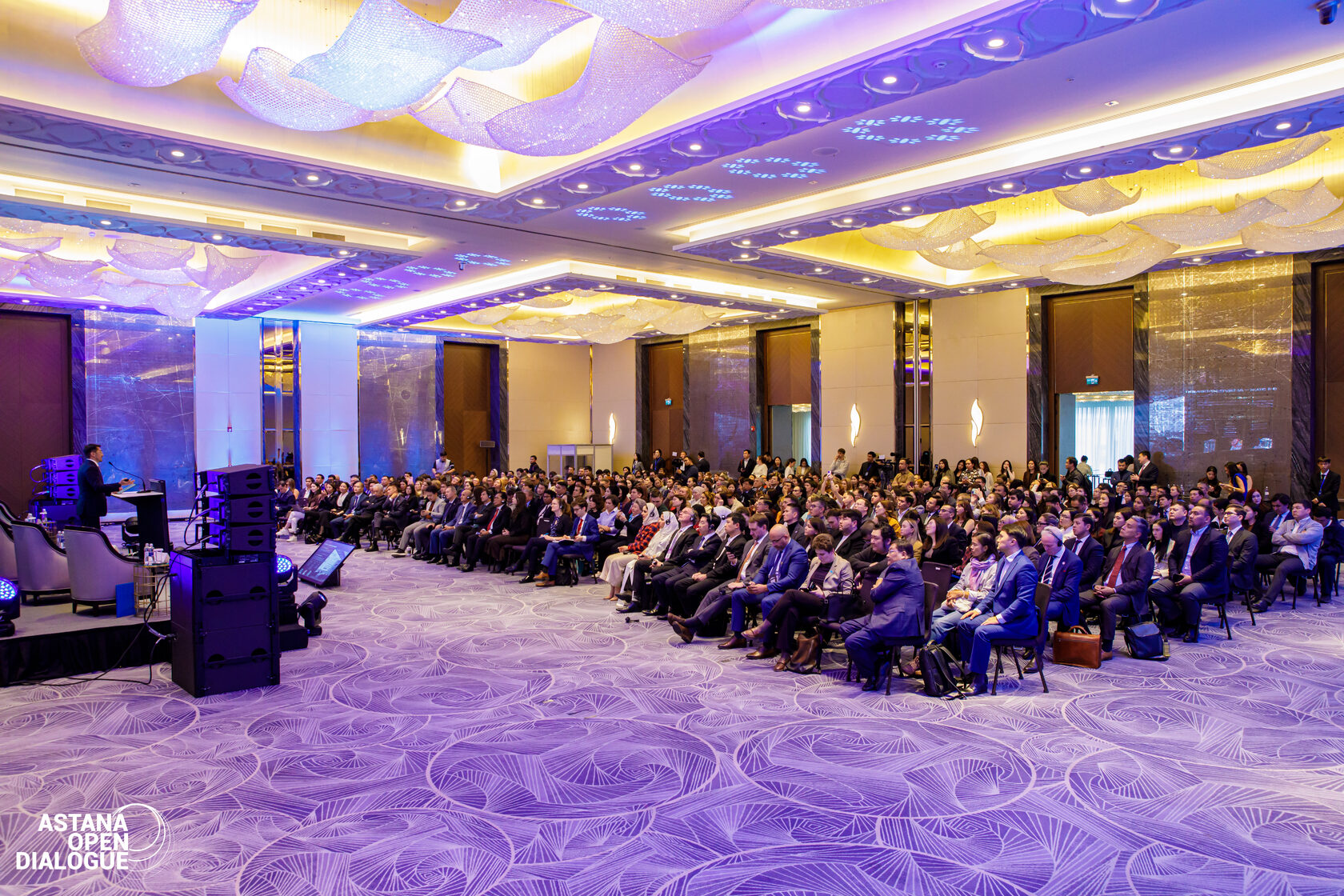The III Astana Open Dialogue Meeting was held in Astana: “Kazakhstan on the Path from E-Gov to AI-Gov: How to Make a Breakthrough?”
The international forum Astana Open Dialogue was held in the capital of Kazakhstan, dedicated to the transition from electronic government to a new stage – AI-gov. The event brought together more than 700 participants, including representatives of government agencies, think tanks, businesses, and the international expert community.
The forum became a key platform for discussing the challenges and opportunities of introducing artificial intelligence into public administration and highlighted Kazakhstan’s strategic role in the global digital transformation.
International Recognition of President Tokayev’s Initiatives
Kai-Fu Lee, CEO of Sinovation Ventures and 01.ai, noted that Kazakhstan is ready to implement next-generation technologies and emphasized the importance of a national AI strategy. He stressed that the country demonstrates rare boldness in setting ambitious goals, which will become the foundation of leadership in the digital age:
“If we look at the power of AI agents, we see the emergence of super-digital workers. They can not only answer questions like chatbots, but also perform tasks and solve problems that have never been solved before. Of course, security issues remain. I am glad to see that Kazakhstan is ready to take on this challenge and move forward at an accelerated pace”.
“It is necessary to have a national strategy for artificial intelligence. I think Kazakhstan has a good one. But the most important thing in such strategies is to have measurable goals. And these goals should be bold, yet measurable”.
The international forum Astana Open Dialogue was held in the capital of Kazakhstan, dedicated to the transition from electronic government to a new stage – AI-gov. The event brought together more than 700 participants, including representatives of government agencies, think tanks, businesses, and the international expert community.
The forum became a key platform for discussing the challenges and opportunities of introducing artificial intelligence into public administration and highlighted Kazakhstan’s strategic role in the global digital transformation.
International Recognition of President Tokayev’s Initiatives
Kai-Fu Lee, CEO of Sinovation Ventures and 01.ai, noted that Kazakhstan is ready to implement next-generation technologies and emphasized the importance of a national AI strategy. He stressed that the country demonstrates rare boldness in setting ambitious goals, which will become the foundation of leadership in the digital age:
“If we look at the power of AI agents, we see the emergence of super-digital workers. They can not only answer questions like chatbots, but also perform tasks and solve problems that have never been solved before. Of course, security issues remain. I am glad to see that Kazakhstan is ready to take on this challenge and move forward at an accelerated pace”.
“It is necessary to have a national strategy for artificial intelligence. I think Kazakhstan has a good one. But the most important thing in such strategies is to have measurable goals. And these goals should be bold, yet measurable”.
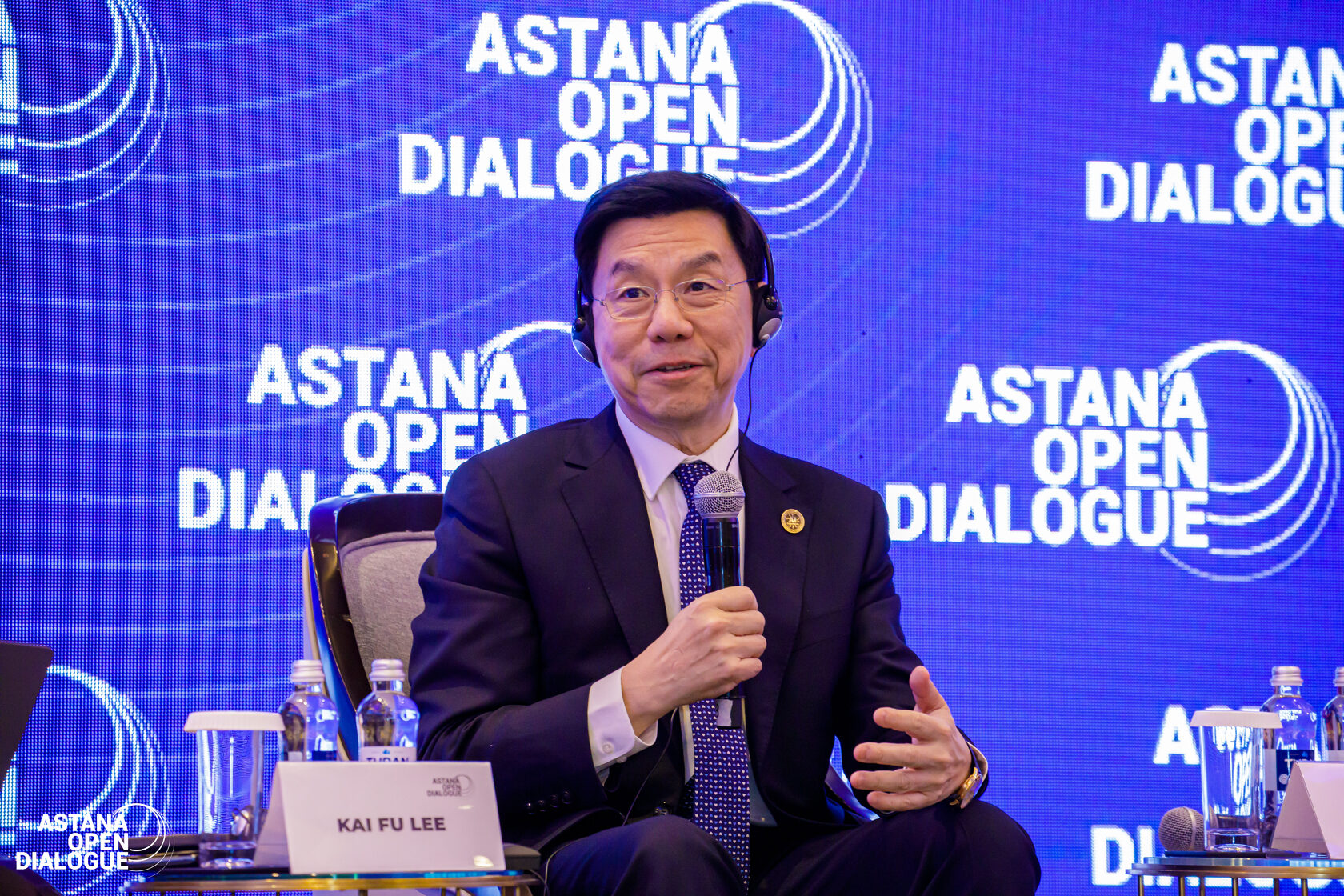
Merouane Debbah, Professor at Khalifa University (Abu Dhabi), Founder of the 6G Research Center, and Chief AI Scientist at TII, highlighted Kazakhstan’s unique opportunities to use AI to boost productivity and innovation. According to him, it is precisely countries like Kazakhstan that can leverage new technologies to leap forward and reach the level of world leaders in digital solutions:
“If you look at Silicon Valley, the most successful startups are not huge companies, but rather small teams of people who know how to use new tools to be more productive. This opens up enormous opportunities for countries like Kazakhstan to be on par with nations with populations in the billions — something that otherwise would never happen. Today, you have a unique chance to apply these tools, become much more efficient, and move forward in their use, because the number of agents is virtually unlimited if used effectively”.
“If you look at Silicon Valley, the most successful startups are not huge companies, but rather small teams of people who know how to use new tools to be more productive. This opens up enormous opportunities for countries like Kazakhstan to be on par with nations with populations in the billions — something that otherwise would never happen. Today, you have a unique chance to apply these tools, become much more efficient, and move forward in their use, because the number of agents is virtually unlimited if used effectively”.
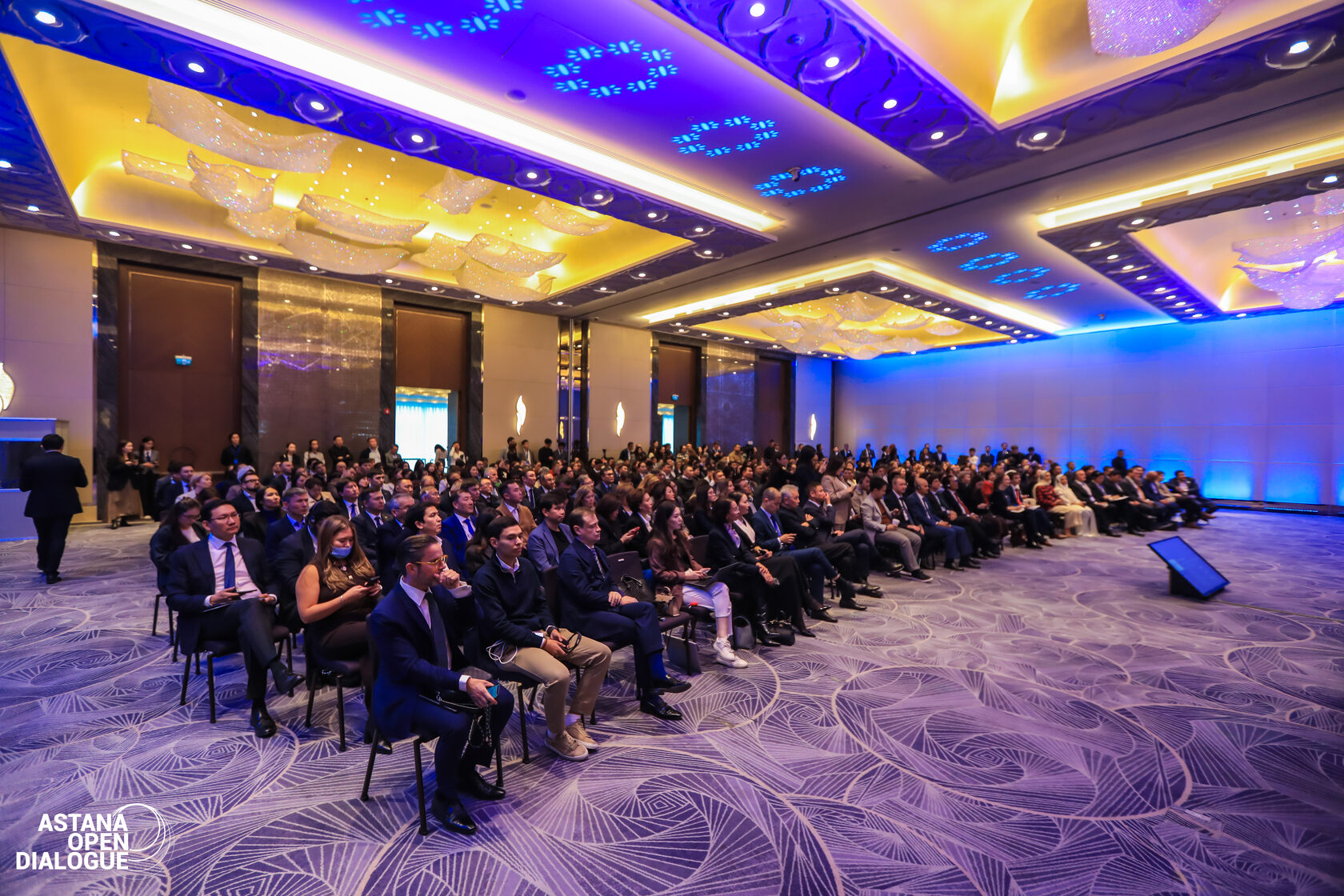
Ebtesam Al-Mazrui, ITU Advisor and Head of the UN’s AI for Good initiative, stressed that President Tokayev and the government have already laid a solid foundation for AI development:
“Your President, as well as the Deputy Prime Minister – Minister of Artificial Intelligence, have already done significant work in the field of large language models. Tomorrow you will be able to see and test this technology yourselves. As your minister noted, citizens of Kazakhstan will be able to co-develop and create this technology. And thanks to this, it will be possible to establish exactly those ethical standards that correspond to Kazakh society”.
She also emphasized achievements in infrastructure and regulation, noting that Kazakhstan has built an entire ecosystem for AI development in a short time. This includes the launch of the modern H2 100 computing cluster, the creation of the first Presidential AI Council, a national AI platform, and a draft law on AI. According to her, special attention is paid to developing human capital — training specialists who will be able to apply new technologies while ensuring fairness, equality, and transparency in the digital environment:
“You have the H2 100 computing cluster. This morning, your President already launched the first Presidential AI Council. You have a national AI platform and a draft law on artificial intelligence. You are investing in human capital to understand this technology. Thanks to this, you will be able to explain the results of its application and know how to ensure fairness and equality in IT”.
“Your President, as well as the Deputy Prime Minister – Minister of Artificial Intelligence, have already done significant work in the field of large language models. Tomorrow you will be able to see and test this technology yourselves. As your minister noted, citizens of Kazakhstan will be able to co-develop and create this technology. And thanks to this, it will be possible to establish exactly those ethical standards that correspond to Kazakh society”.
She also emphasized achievements in infrastructure and regulation, noting that Kazakhstan has built an entire ecosystem for AI development in a short time. This includes the launch of the modern H2 100 computing cluster, the creation of the first Presidential AI Council, a national AI platform, and a draft law on AI. According to her, special attention is paid to developing human capital — training specialists who will be able to apply new technologies while ensuring fairness, equality, and transparency in the digital environment:
“You have the H2 100 computing cluster. This morning, your President already launched the first Presidential AI Council. You have a national AI platform and a draft law on artificial intelligence. You are investing in human capital to understand this technology. Thanks to this, you will be able to explain the results of its application and know how to ensure fairness and equality in IT”.
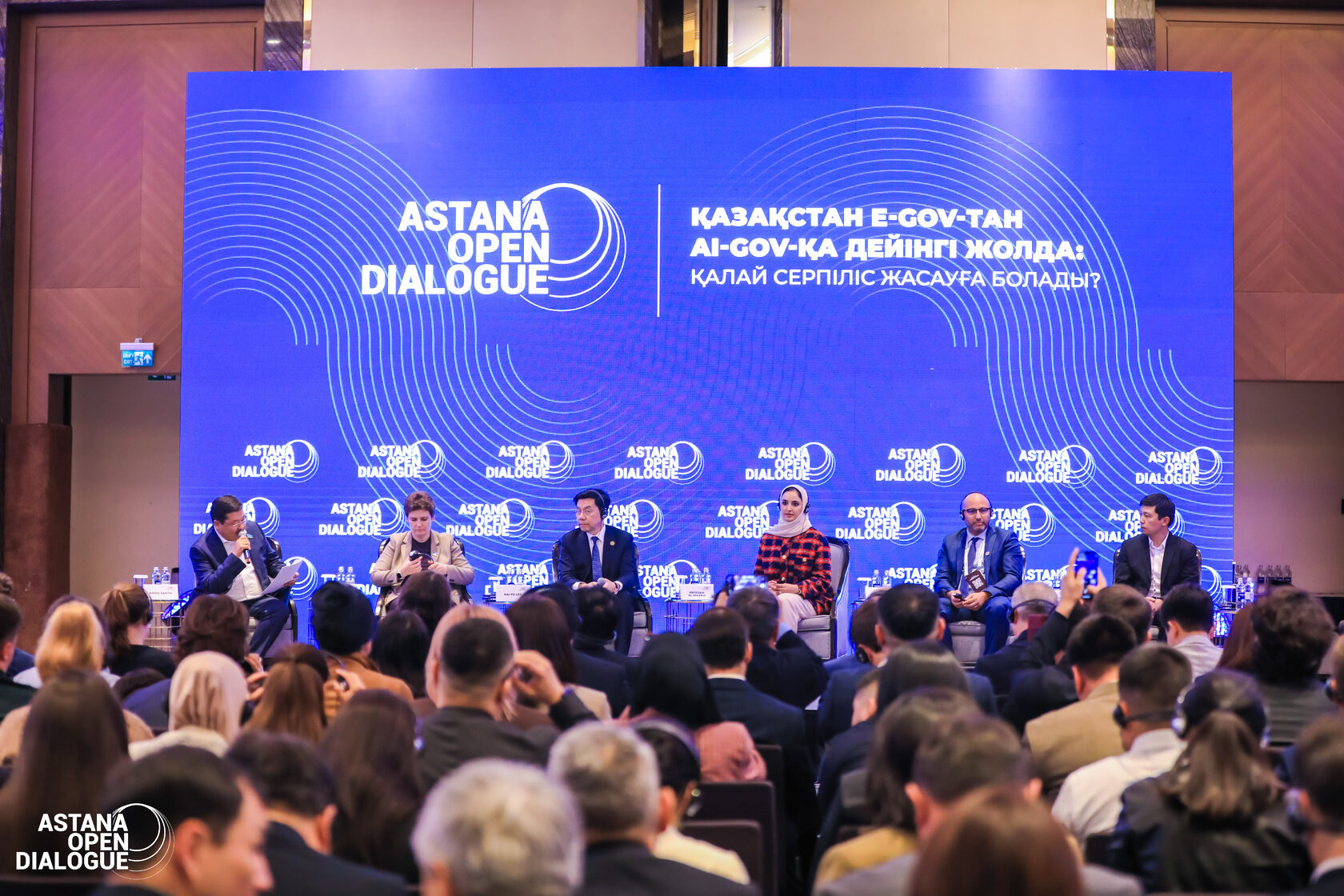
Katarzyna Wawiernia, UNDP Resident Representative in Kazakhstan, confirmed that the country is confidently moving in line with the global AI agenda. She noted that Kazakhstan is well positioned to ensure that AI adoption benefits society in education, healthcare, and governance, but stressed the importance of ensuring equal opportunities for all:
“Kazakhstan is well positioned and already included in this agenda. But we must work together to ensure that no one is left behind — not in the regions of Kazakhstan, nor in the least developed countries, nor among small and medium-sized enterprises, in a world driven by the interests of large corporations”.
“Kazakhstan is well positioned and already included in this agenda. But we must work together to ensure that no one is left behind — not in the regions of Kazakhstan, nor in the least developed countries, nor among small and medium-sized enterprises, in a world driven by the interests of large corporations”.
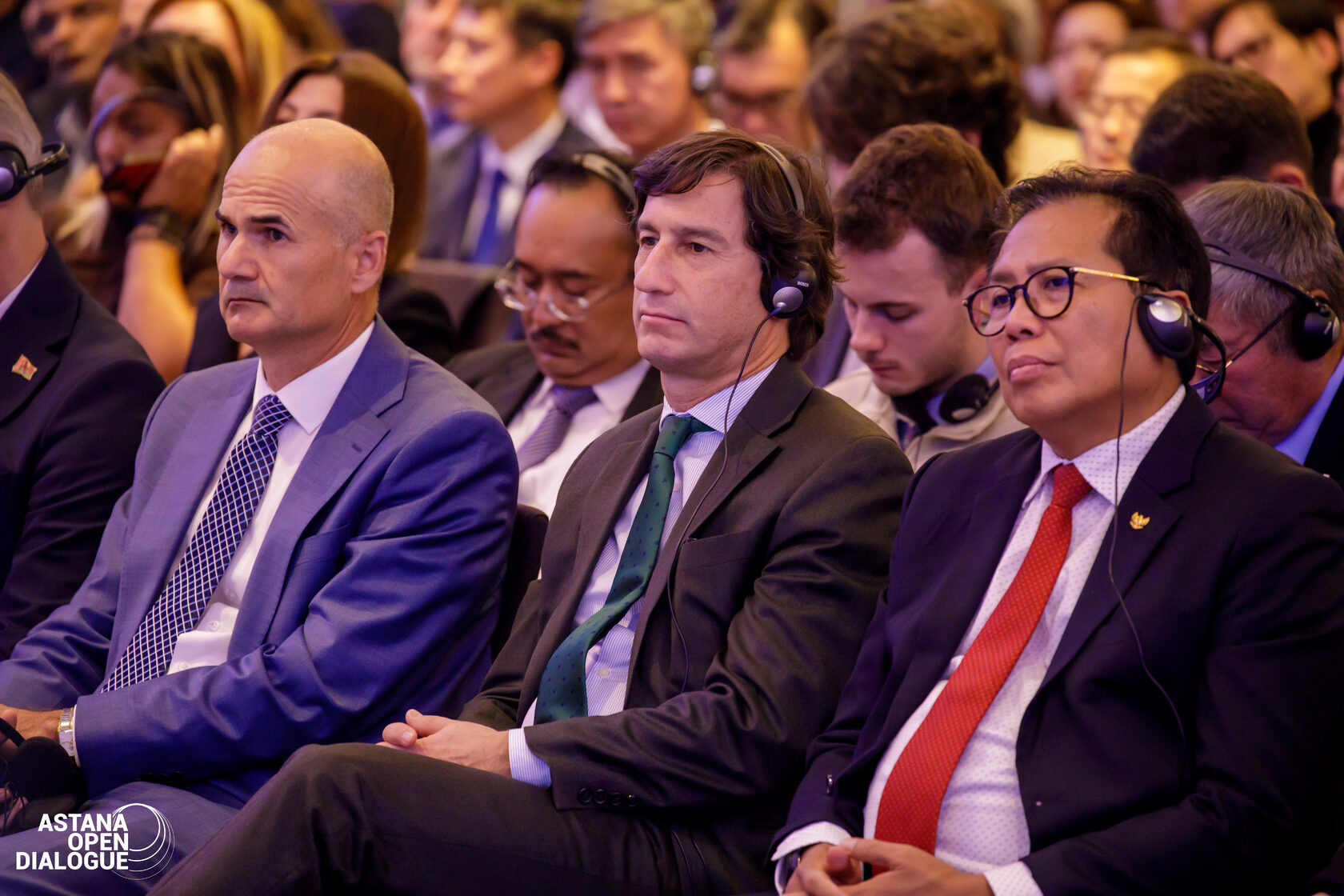
Paul Kim, former CTO and Associate Dean of the Stanford Graduate School of Education, emphasized that Kazakhstan is at a historic stage in developing educational initiatives. According to him, projects like AI SANA can radically transform the education system, shifting students from passive knowledge absorption to active creation and technological development:
“I believe Kazakhstan is at the right moment. The AI SANA project will have a huge impact both now and in the future. I am pleased to be part of this program, which shapes practice-oriented approaches and develops in students the ability for hyper self-regulation, helping them to become creators and researchers rather than simply memorizing and reproducing material”.
“I believe Kazakhstan is at the right moment. The AI SANA project will have a huge impact both now and in the future. I am pleased to be part of this program, which shapes practice-oriented approaches and develops in students the ability for hyper self-regulation, helping them to become creators and researchers rather than simply memorizing and reproducing material”.
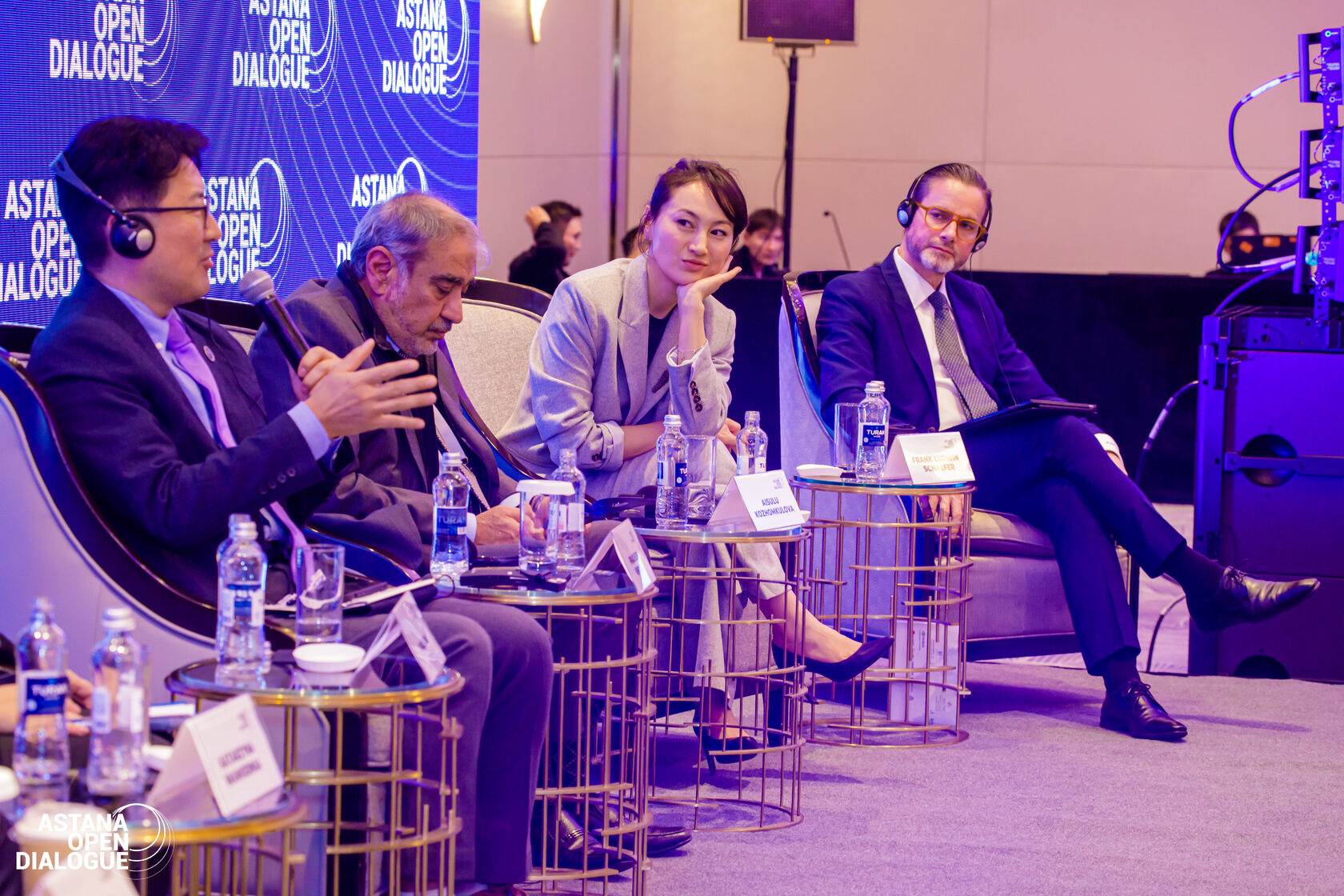
Thus, at the 3rd meeting of the independent analytical platform Astana Open Dialogue, international experts highlighted Kazakhstan’s determined pursuit of total digitalization and confirmed that the chosen course for AI development aligns with global trends, opening up broad prospects for the country’s further growth.
